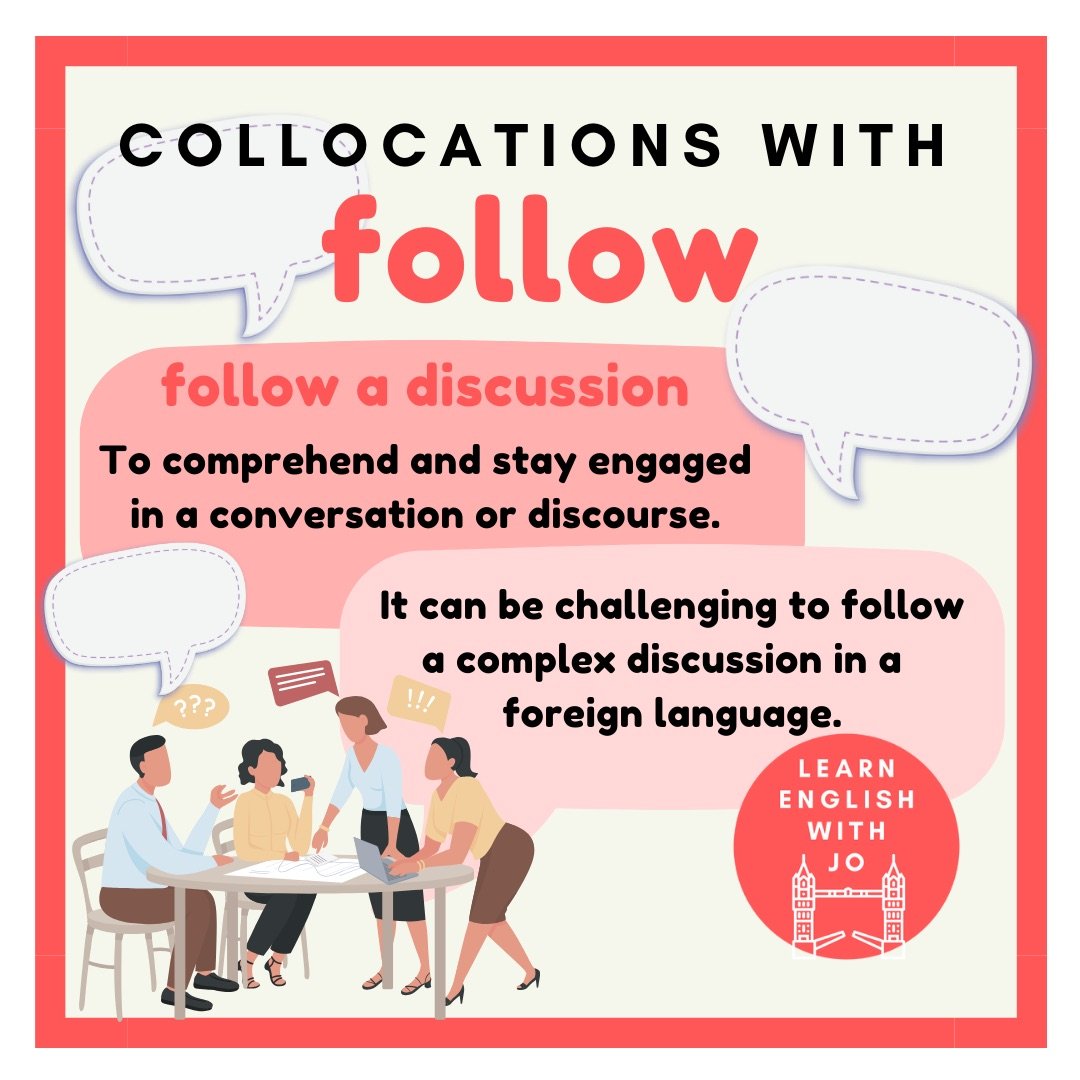English collocations with follow.
Here on my blog, I try to post content dedicated to helping ESL students enhance their English language skills. In this post, we'll delve into essential collocations using the word 'follow.'
Learning collocations can help you speak English more fluently. A collocation is a common way in which words regularly go together. It’s like a partnership between words that often appear side by side or near each other. These word combinations have become natural and customary in the language.
Understanding these combinations will not only broaden your vocabulary but also boost your ability to communicate effectively in various situations.
Follow a Discussion
Engaging in conversations is a vital part of language learning. To become a proficient English speaker, it's crucial to follow a discussion closely. Pay attention to the ideas presented, ask questions, and express your thoughts to actively participate in the conversation.
Follow the News
Staying informed about current events is a valuable habit. ESL students can improve their language skills by following the news regularly. This not only provides exposure to diverse vocabulary but also helps in understanding how language is used in different contexts.
Follow a Plan
Success in language learning often involves careful planning. Create a study plan and follow it diligently to ensure consistent progress. Following a well-structured plan can help you allocate time efficiently and cover various aspects of the English language.
Follow a Dream
Learning English is a journey, and having dreams and aspirations can be a powerful motivator. Whether it's traveling to an English-speaking country, pursuing higher education, or connecting with people globally, following your dreams can drive your language learning efforts.
Follow a Trend
Language is dynamic, and staying updated with current language trends is essential. Follow a trend by reading contemporary literature, engaging with popular culture, and exploring online content to incorporate modern language usage into your vocabulary.
Follow Someone’s Lead
Learning from others is an effective way to improve language skills. Find a mentor or language exchange partner and follow their lead. Mimicking native speakers can help you pick up nuances in pronunciation, intonation, and overall language usage.
Follow a Rule
Grammar is the backbone of any language. To enhance your English proficiency, follow grammar rules meticulously. Understanding and applying grammatical principles will help you express yourself clearly and accurately.
Follow a Routine
Consistency is key in language learning. Establish a daily routine that includes dedicated time for reading, writing, listening, and speaking in English. Following a routine can create a structured learning environment and foster steady progress.
Follow Instructions
Being able to follow instructions accurately is a crucial skill in language learning and beyond. Practice following instructions in various contexts to improve your comprehension and execution of tasks, both written and verbal.
Follow a Recipe
Language learning, like cooking, involves combining different elements to create a cohesive result. Follow a recipe for language success by using a variety of resources, such as textbooks, online courses, language apps, and real-life interactions.
Mastering these collocations with 'follow' will undoubtedly enhance your English language skills. Whether you're following a discussion, a plan, or a dream, each experience contributes to your overall proficiency. Stay committed to your language learning journey, and success will undoubtedly follow. Happy learning!










